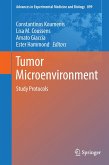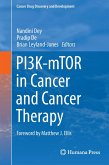The imbalance between rapidly proliferating tumor cells and inadequate and inefficient tumor vasculature leads to a decrease in oxygen levels (hypoxia and/or anoxia) in tumor tissues. Intra-tumor hypoxia profoundly affects the biological behavior of cancer cells, which become resistant to conventional therapies and acquire a more invasive and metastatic phenotype. Hypoxia is a hallmark of the malignant phenotype and a key feature of the tumor microenvironment. Hypoxia Inducible Factor 1 (HIF-1) is a master regulator of the transcriptional response to oxygen deprivation. HIF triggers the expression of genes whose products induce angiogenesis, decrease oxygen consumption, switch metabolism to glycolysis, maintain a stem cell phenotype and select for more invasive and metastatic cells. Therapeutic approaches targeting HIF, directly or downstream mediators of its transcriptional activity, are being developed. Intra-tumor hypoxia is a topic has been gaining scientific interest over the last few years for its wide involvement in many physiological and pathological processes.
This volume will cover the latest research and translational aspects associated with intra-tumor hypoxia, along with opportunities for drug development offered by this unique feature of the tumor microenvironment. The ongoing efforts to translate our understanding of the biology underlying intra-tumor hypoxia in viable therapeutic options face many challenges, but this book will provide an opportunity for an in-depth analysis of the fundamental mechanisms implicated in the adaption to low oxygen levels and will scrutinize the potential for opportunities that are being pursued in both research and the drug development industry.
This volume will cover the latest research and translational aspects associated with intra-tumor hypoxia, along with opportunities for drug development offered by this unique feature of the tumor microenvironment. The ongoing efforts to translate our understanding of the biology underlying intra-tumor hypoxia in viable therapeutic options face many challenges, but this book will provide an opportunity for an in-depth analysis of the fundamental mechanisms implicated in the adaption to low oxygen levels and will scrutinize the potential for opportunities that are being pursued in both research and the drug development industry.








